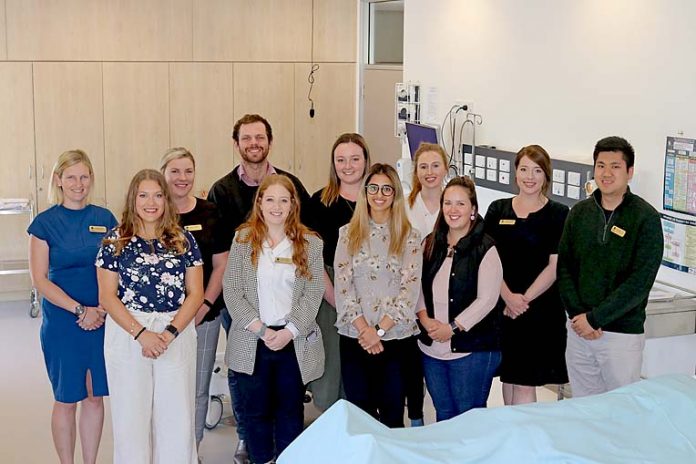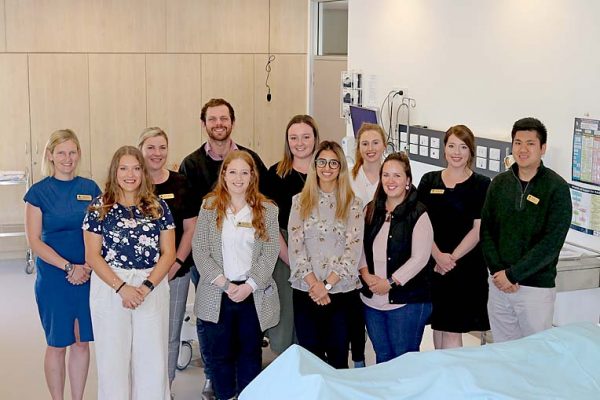

A RURAL health program which gives medical students hands-on professional experience at Mount Gambier Hospital has welcomed its largest cohort since its inception.
Flinders University’s Parallel Rural Community Curriculum (PRCC) program – based out of a purpose-built site adjacent to the regional hospital – introduces third-year medical students to the challenges and rewards of rural medicine.
A group of 11 students will undertake the 12-month program in the Blue Lake city, joined by seven of their peers who will intern at the hospital this year.
Flinders University Rural Health South Australia program administrator Jacqui Michalski said the intake was the highest since the program’s launch in 2002.
“The whole point of the program is to encourage students to return and work in our regional health sectors,” Ms Michalski said.
Highlighting the program’s success, Rural Health South Australia head of discipline Dr Leesa Walker revealed former participants Dr Ilze Alexander and Dr Fred Gott had returned to the city as interns after completing the third-year placement in 2018.
“It is great to see there is a lot of interest in rural placement areas, they are often seen as great opportunities and are well-supported by students and staff,” Dr Walker said.
“It is what we are all about, trying to train the future doctors of rural areas.
“Data for the past 20 years shows 30pc of our students are returning back to regional South Australia after studying which means to program is doing what it is meant to.”
Dr Walker believes regional placements expose students to more hands-on opportunities compared to metropolitan areas.
“There are a lot fewer learners, so they are very much a part of the health care team,” she said.
“When placed here for the whole year, they are able to meet their supervisors and the staff all begin to know them by name.”
“They are able to have more interaction with patients and really make a difference.”
Ms Michalski said regional placement in areas like Mount Gambier was often highly regarded by medical students.
“In the city, sometimes students are considered just a number and they do not receive the face-to-face support they would here,” she said.
“They definitely do not miss out on anything, in fact we think it is better and they are all very well looked after.
“We have great numbers, but we would always love to see more.”







